best viewed with NetSurf

History of GNU/Linux Operating systems
The first programmable electronic general-purpose digital computer, ENIAC (Electronic Numerical Integrator and Computer), did not have an operating system, was programmed by connecting cables and setting switches because it didn't have memory for storing programs and used decimal representation of numbers, instead of binary. Stored-program computers were developed later and initially they didn't have operating systems
On the first computers, with no operating system, every program needed the full hardware specification to run correctly and perform standard tasks, and its own drivers for peripheral devices like printers and punched paper card readers. The growing complexity of hardware and application programs eventually made operating systems a necessity for everyday use.
At first, machine code and assembly language were used to program computers, then easier to use programming languages were created, along with compilers and interpreters to translate their instructions (i.e. source code) into machine code. Where present, an operating system:- Acts as an intermediary between other programs and the computer hardware;
- Allows the user to control (operate) the computer.
Unix
Unix
Less than 20,000 lines of code – almost all in C – composed the Unix kernel as of 1983,
and more than 75% was not machine-dependent. By that year Unix or a Unix-like system was available for at least
16 different processors and architectures from about 60 vendors;
[...]
Microcomputer Unix became commercially available in 1980, when Onyx Systems released its Zilog Z8000-based
C8002 and Microsoft announced its first Unix for 16-bit microcomputers called Xenix, which the Santa Cruz
Operation (SCO) ported to the 8086 processor in 1983.
In the United States, before 1974
software and its source code was not copyrightable and therefore always public domain
software.
In 1974, the US Commission on New Technological Uses of Copyrighted Works (CONTU) decided that
"computer programs, to the extent that they embody an author's original creation, are proper subject matter
of copyright".
In 1983 in the United States court case Apple v. Franklin it was ruled that the same
applied to object code;
MD5: 7bef32059d7755067b48c2b999a8bda3
The need for these programs has created an enormous industry for their development, sales, and implementation, and, as a consequence, there is a need by the creators of software to protect their proprietary interests.
Although it specifies exactly what is protected and who needs that protection right on the first page, the document has a misleading title, referring to copyright protection for computer programs. The only danger to which a program might be exposed is its loss/destruction and the only way to protect it is to make as many copies as possible. Copyright pursues the exact opposite of that, so instead of protecting the programs, it endangers them and the expression copy protection, if we think a little, can only refer to protecting a program by copying it but, again, it is used with the exact opposite meaning and this is how people's thinking is manipulated through language.In the same year, 1983, the political journalist Richard Stallman, who was a computer hobbyist back then, fed up with all this puffery, started the GNU project
With the launch of the
GNU Project,
he started the free software movement and, in October 1985,
set up the
Free Software Foundation.
Stallman pioneered the concept of
copyleft
![]() and is the main author
of several copyleft licenses including the GNU General Public License, the most widely used free software license.
Since the mid-1990s, Stallman has spent most of his time advocating for free software, as well as campaigning
against both software patents and [...] extension of copyright laws. Stallman has also developed
a number of pieces of widely used software, including the original Emacs, the GNU Compiler Collection, and the GNU
Debugger. He co-founded the League for Programming Freedom in 1989.
and is the main author
of several copyleft licenses including the GNU General Public License, the most widely used free software license.
Since the mid-1990s, Stallman has spent most of his time advocating for free software, as well as campaigning
against both software patents and [...] extension of copyright laws. Stallman has also developed
a number of pieces of widely used software, including the original Emacs, the GNU Compiler Collection, and the GNU
Debugger. He co-founded the League for Programming Freedom in 1989.
[...]
In 1980, Stallman and some other
hackers at the AI Lab were refused the software's source code for the Xerox 9700 laser printer (code-named "Dover"),
the industry's first. Stallman had modified the software on an older printer (the XGP, Xerographic Printer), so it
electronically messaged a user when the person's job was printed, and would message all logged-in users when a
printer was jammed. Not being able to add this feature to the Dover printer was a major inconvenience, as the
printer was on a different floor from most of the users. This one experience convinced Stallman of people's need
to be free to modify the software they use.
An important component of any operating system is the kernel, which handles interactions between hardware and other software components. In 1990 the people involved in the GNU Project started to develop a kernel which they called GNU Hurd, but in 1991, Linus Torvalds, a Finnish student, used the GNU development tools and the Minix operating system to develop another kernel which was eventually called Linux, became more successful than Hurd and so the GNU/Linux
Many users do not understand the difference between the kernel, which is Linux, and the whole
system, which they also call “Linux”.
[...]
For example, many believe that once Linus Torvalds finished
writing Linux, the kernel, its users looked around for other free software to go with it, and found that (for no
particular reason) most everything necessary to make a Unix-like system was already available.
What they found was no accident—it was the not-quite-complete GNU system. The available free software added up to
a complete system because the GNU Project had been working since 1984 to make one.
What is LINUX?
LINUX is a free unix-like kernel for 386-AT computers, coming with full source code. It is meant for
hackers/computer science students to use, learn and enjoy. It is written mostly in C, but parts of it
are in gnu-format assembler, and the boot-sequence is in intel 086 assembly language. The C-code is
relatively ANSI, with a few GNU enhancements (mostly __asm__ and inline).
While there are a number of unices available for 386 computers, most of them cost a lot of money, and
come with no source. Thus, they are ideal for actually using your computer, but if you want to learn
how they work, you are f- -ked.
It occurs to me that Linus might find it interesting to spend some time with
Bill Gates
![]() .
At first, he says he is not the least bit interested [...]. "[...] I couldn't give him advice in business and he
couldn't give me advice in technology", he says. Then he adds, "Even if you're the best technology person at
Microsoft, your goal isn't to make the best product possible."
.
At first, he says he is not the least bit interested [...]. "[...] I couldn't give him advice in business and he
couldn't give me advice in technology", he says. Then he adds, "Even if you're the best technology person at
Microsoft, your goal isn't to make the best product possible."
"His whole mission in life is to see that anything that threatens Microsoft goes away", continues Linus. "He
probably is the best businessman alive today. And he happened to be in the right place at the right time and he was
technical enough to take advantage of it."
[...]
"There are like two golden rules in life. One is 'Do unto
others as you would want them to do unto you'. For some reason, people associate this with Christianity. I'm not
a Christian. I'm agnostic. The other rule is 'Be proud of what you do'."
Pictures
It should be obvious by now that GNU/Linux is currently the best operating system for (almost) anything and although it is used in the fastest supercomputers, it can also render older computers quite useful and even enable them to perform the most important task that every computer has to perform, which is, of course, playing videos from the internet. A few pictures are below.
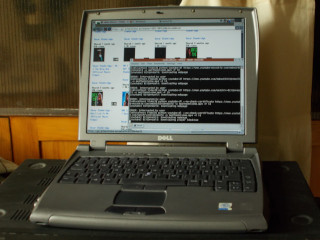 Downloading a video
Downloading a video
|
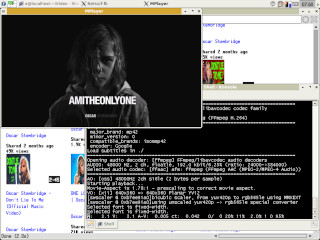 Playing the video, with
MPlayer 1.3.0
Playing the video, with
MPlayer 1.3.0
|
- 2023
Laptop, Pentium III CPU (from 1999), 450 MHz, 128 MiB of RAM, Fedora Core 6
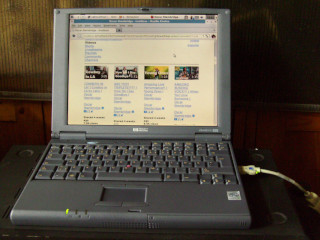 Firefox 10
Firefox 10
|
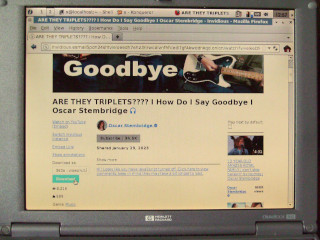 Downloading a video
Downloading a video
|
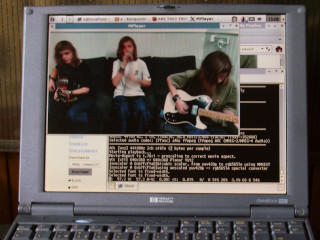 Playing the video
Playing the video
|
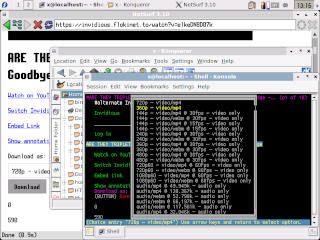 It is of course preferable to use
NetSurf and
Lynx rather than Firefox
It is of course preferable to use
NetSurf and
Lynx rather than Firefox
|
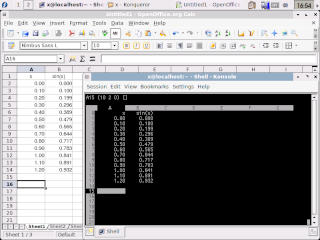 OpenOffice and
sc
(spreadsheet calculators)
OpenOffice and
sc
(spreadsheet calculators)
|
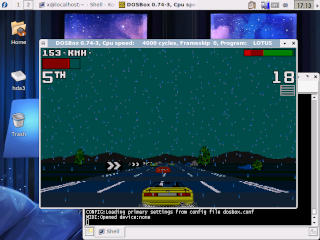 The second most important task that computers have to perform
The second most important task that computers have to perform
|
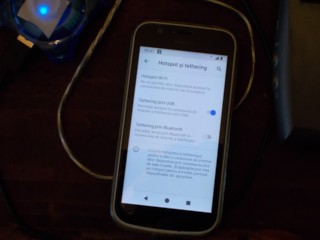 Snoop-phone
Snoop-phone
|
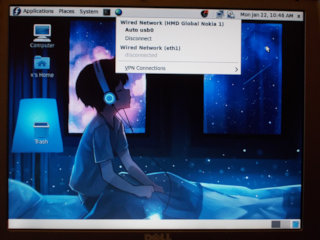 Laptop connected to internet
Laptop connected to internet
|
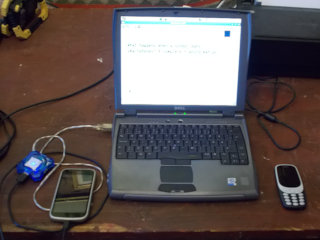
|
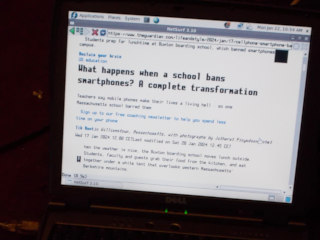
|
As can be seen, new versions of many (not Firefox) free programs can be compiled on old GNU/Linux distributions, which can run on old hardware.